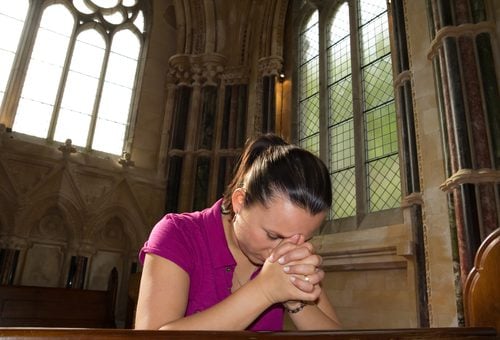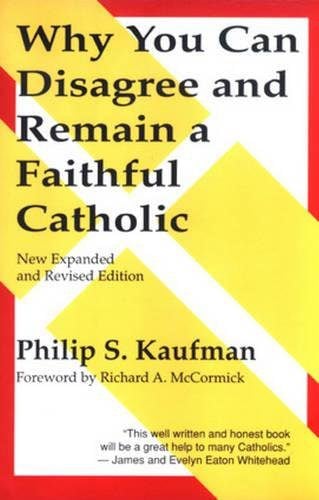
A reader of this blog wrote the following message to me recently:
I loved your books on Christian mysticism and silence… In your books you write about the importance of belonging to a faith conmunity. I was not raised religiously, and am not baptised. So there is no community I can fall back upon. A few times I have been close to joining the Catholic Church, but every time I just felt I couldn’t do it… because of the abuse, the position of women, the position on gay people etc. But still I feel drawn to the Church.
Is there any advice you could give me? And, if that is not too impertinent a question, how do you deal with he things you don’t agree with in the catholic church (if any)?
Thank you for this question. I think this is something that many people struggle with.
When I first became seriously interested in becoming a Catholic, back in 2004, I was in a similar place that you are now. Raised Protestant, I had left Protestantism behind in the late 1990s, and spent about seven years exploring various flavors of Neopagan and Wiccan spirituality, but ultimately felt those paths were dead ends, at least for me. Then after a meaningful trip to Ireland in late 2003, I found myself returning to the Christian mystics and feeling more and more drawn to Catholicism.
But there were those issues where I knew I did not see eye-to-eye with the Church. So, I reached out to the pastor of the nearest Catholic Church to where I lived. A kindly septuagenarian named Fr. Greg, he welcomed me into his office and listened patiently as I told my story and I detailed my concerns: I thought the Church should ordain women and married people in addition to just celibate men; I thought the catechism was wrong to say that homosexuality is objectively disordered; I thought it was inconsistent for the Church to promote “natural” family planning while condemning “artificial” contraception (after all, calendars and basal thermometers are just as human-made as a condom or a diaphragm), and while I admire Catholicism’s consistent ethic of life, I thought that the way so many Catholics demanded the criminalization of abortion but looked the other way when it came to issues of economic or social injustice was, well, hypocritical.
I finished my laundry list of concerns by saying, “So, if I joined the Church, I’m afraid I would be a bad Catholic.”
The priest finally spoke. “Carl,” he said gently, “conscientiously disagreeing with the Church does not make one a bad Catholic.”

That was a watershed moment for me. As I’ve talked to other Catholics, priests and laypersons, over the years, I’ve discovered that many Catholics share these same struggles. There’s even a wonderful book, written by a Benedictine monk, called Why You Can Disagree and Remain a Faithful Catholic which explores many of these issues.
Unfortunately, there are many voices within the Church — not only among the Bishops, but also bloggers, speakers, and popular authors — that seem to say something like “you must absolutely agree with everything the Church teaches, or else you have no business being a Catholic.” But the reality on the ground is different. If every Catholic who disagreed with the Church on one issue or another were to leave tomorrow, there would be a lot of empty pews — and empty collection plates — on Sunday.
So what do we do?
Because these are matters of conscience, there’s no one-size-fits-all answer here. But I think for anyone who is trying to discern whether or not to become a Catholic, the question must begin with faith, and with God.
To me, there is only one reason to become a Catholic, and that’s if and when we discern that the Catholic faith is our best path for growing spiritually, which is to say, growing in response to the love of God.
When I was a student in RCIA (the process for adults becoming Catholic), my catechist (teacher) said one day, “I’ve never talked to the Pope, and I don’t talk to the Bishop much either. But I talk to God every day, and seek to listen to God as well.” That’s not to suggest that the Pope or the Bishops are unimportant. But what’s most important is being in relationship with God.
But do you have to be a Catholic (or some other type of Christian) to have a relationship with God? Some people might think that’s unimportant. But Christianity disagrees. Jesus was very clear that to follow him meant loving other people just as much as it meant loving God. “If you love me, keep my commandments… and this is my commandment, that you love one another,” he proclaimed. Jesus also instructed Christians to wash each other’s feet. Many Churches (including the Catholic) do this in a symbolic way the night before Good Friday, but we are meant to be “foot-washers” all the time, which is to say, we live out our faith by loving and serving our sisters and brothers. The Church is a community dedicated to doing just that, so that’s why we need the Church.
It’s been over 13 years since I had that meeting with Fr. Greg, and now I’m a catechist, so it’s interesting how things come full circle. Yes, I still struggle with some aspects of Church teaching. But I’ve learned that the Church places a high value on being true to one’s own conscience, and so I think that when we realize that we have difficulty with this or that teaching, we need to investigate the matter conscientiously — sincerely trying to understand why the Church teaches what it does, and also to understand the values and beliefs that lead me to disagree with certain teachings. In other words, don’t settle for a knee-jerk reaction, but rather be prayerful and thoughtful in forming (or re-forming) our beliefs and values.
At the end of the day, I’m not a Catholic because of the Church’s teachings on contraception, or homosexuality, or economic injustice, or the consistent ethic of life. I am a Catholic because I believe in God, and I believe what the Church teaches about who God is and how God loves us. I would be very suspicious of somebody who wanted to become a Catholic because he or she agreed with all the Church’s teachings on issues like sexuality or economics — but didn’t care about God at all. But I would be very comfortable encouraging someone who genuinely hungered for God, even though they weren’t sure what to make of Church teachings on matters concerning this or that social or moral issue. Persons like that, it seems to me, are truly responding to a call from the Holy Spirit, even though joining the Church might not always be easy for them.
So let me finish by directly addressing the reader who wrote the question above. The Catholic Church is not perfect. That should be no surprise to anyone, for after all, human beings are sinners: we are flawed, wounded, and we make mistakes. That’s just as true for followers of Jesus as for everybody else. Different people might struggle with different aspects of Church teachings or practice. So what I’m about to say would be just as true for someone who is liberal or conservative, progressive or traditionalist, authoritarian or libertarian. Becoming a Catholic very much means dealing with an organization that is not only imperfect, but flawed, and anyone who tells you otherwise has a fantasy understanding of the Church (the Church has its own language of indefectibility, which some people interpret to mean “the Church is perfect” but what it really means is that the Church is confident that its essential teachings are true). Therefore, to become a Catholic requires that you are very clear with yourself about what draws you to the Church and what you conscientiously disagree with or cannot accept. As you get to know more and more Catholics, you will find that this is a secret to being a happy and healthy Catholic. There are many of us who remain in the Church because it nurtures us spiritually and challenges us to grow in our response to the love of God and to be more compassionate and loving to our neighbors and even our enemies. But “part of the job” is remaining clear about all the ways we continue to grapple with the Church’s imperfections as well as the Church teachings we find ourselves unable to accept — hopefully always prayerfully, charitably, and conscientiously.
Enjoy reading this blog?
Click here to become a patron.














